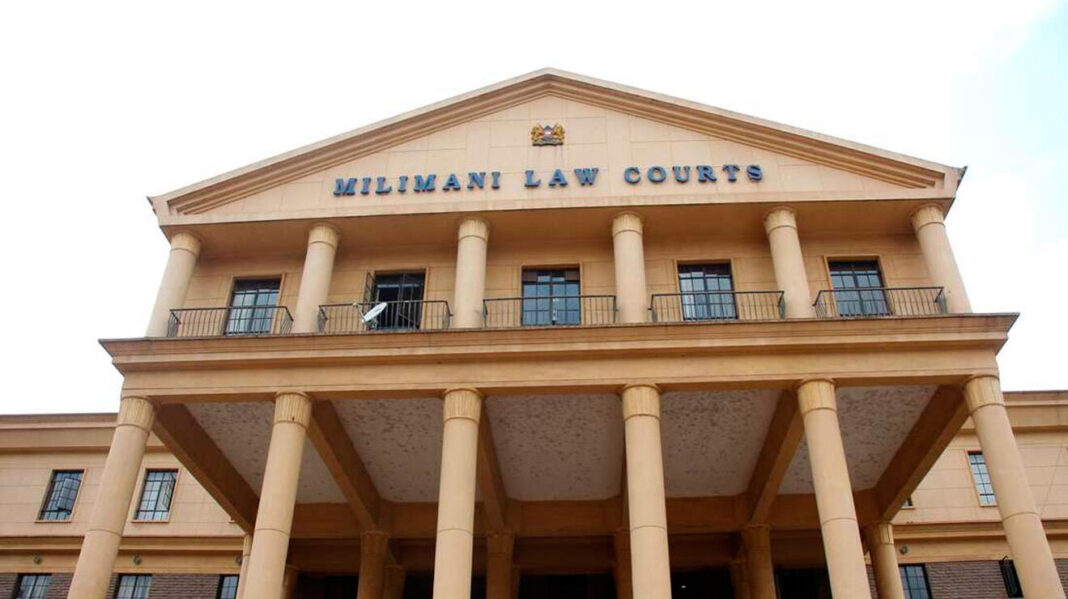Nairobi landlords will begin paying higher land rates starting January 1, 2026, according to a new notice from Governor Johnson Sakaja’s administration. The revised structure, anchored in the National Rating Act 2024, is part of efforts to streamline revenue collection and update valuations that have remained unchanged for years.
The County Executive Committee Member for Built Environment and Urban Planning, Patrick Mbogo, confirmed the changes on Friday, October 24, 2025. The announcement will significantly affect property owners across Nairobi, with new flat rate zones and uniform valuation rates taking effect.
Under the new plan, property owners are urged to review their obligations early and make necessary adjustments before the new charges take effect.

Government Unveils New Charges for Nairobi Landlords Starting 2026
The notice from City Hall revealed that all ratable owners within Nairobi County would be subjected to updated rates effective from January 2026.
For the smallest land parcels, not exceeding 0.1 hectares, the annual rate will be Ksh2,560. Land measuring between 0.1 and 0.2 hectares will attract Ksh3,200 per year. Parcels larger than 0.2 hectares but not exceeding 0.4 hectares will be charged Ksh4,000 annually, while the highest category—for land above 0.4 hectares—will pay Ksh4,800.
Mbogo emphasized that the rates were designed to ensure fairness, applying a clear structure that aligns with current land values and urban development standards.
For properties under both private and public valuation, charges will now be based on the 2019 Draft Valuation Roll, which City Hall plans to finalize soon.
Uniform Rates for All Property Categories
In a notable shift from previous models, the new policy will apply uniform rates across all property categories—residential, commercial, and agricultural. Each will be charged an annual rate of 0.115 percent of the Unimproved Site Value (USV).
This means Nairobi landlords will now face standardized obligations regardless of the nature of their property. According to Mbogo, this structure aims to eliminate confusion that previously arose from different rates across sectors.
He further clarified that the 0.115 percent rate was calculated to maintain a balance between generating county revenue and protecting property owners from excessive taxation.
The County Government believes the uniform approach will simplify billing, reduce disputes, and increase compliance.
City Hall’s Guidance to Landlords and Property Owners
Mbogo also addressed concerns from property owners whose land details are either missing or disputed in the 2019 Draft Valuation Roll. He advised such landlords to contact the Chief Valuer at City Hall for further guidance and corrections before the billing cycle begins.
He added that property owners who had already filed objections to the valuation roll should not make any payments until their appeals are fully heard and decisions are rendered.
The notice also included new requirements for sectional title holders, who must now open individual rates accounts to enhance accountability and streamline records.
City Hall reiterated that the adjustments are in line with national legislation and are necessary to modernize revenue collection systems.
According to sources at the County Treasury, the new framework is expected to boost Nairobi’s annual revenue by a significant margin, helping fund infrastructure, waste management, and urban renewal projects.
While the county government insists that the changes are necessary for better service delivery, analysts believe the move could lead to increased rent prices if landlords transfer the cost burden to tenants.
Nonetheless, Mbogo maintained that City Hall would continue engaging stakeholders to ensure a smooth transition. He urged landlords to begin planning early and seek clarification from the relevant offices to avoid penalties or confusion in 2026.
Final Word
The Nairobi City County Government’s new directive signals a major shift in property taxation for the capital’s real estate market. With the implementation date set for January 1, 2026, landlords are encouraged to review their land documents, verify valuation details, and understand their new obligations under the National Rating Act 2024.
The county insists that the revised system will bring fairness, transparency, and better revenue management—a move City Hall says is long overdue for Nairobi’s growing urban landscape.


